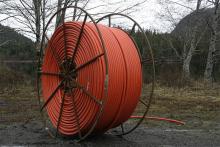Frontier Removes 17,000 Census Blocks From $20 Billion Rural Broadband Auction
Last week, Frontier Communications told the Federal Communications Commission (FCC) that there are 17,000 census blocks in which it is now offering 25 Megabits per second (Mbps) download and 3 Mbps upload. This means well over 400,000 Americans now live in areas no longer eligible for the FCC's Rural Digital Opportunity Fund, a $20.4 billion program to expand rural broadband. The first phase will auction off up to $16 billion in subsidies later this year.
In the filing, the company also identified census blocks where it believes other providers will deploy broadband access through state-funded programs, making those locations ineligible for the federal funds as well.
Frontier is Flailing



